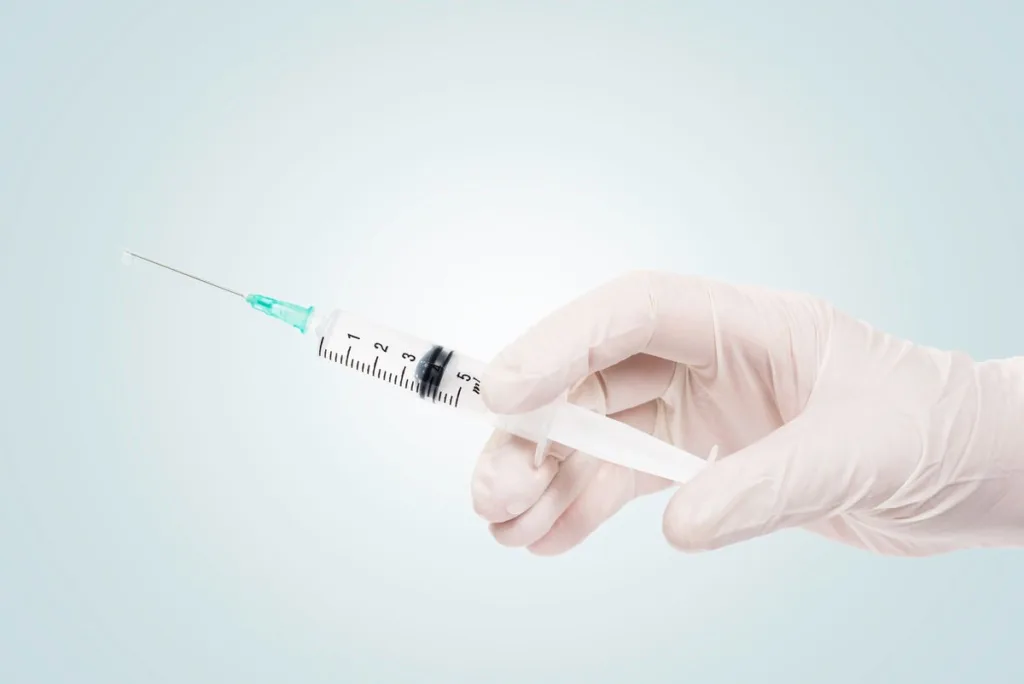Prescription weight loss injections have been gaining immense popularity in recent years as powerful solutions for dropping excess pounds. With enticing claims of easy and rapid weight loss, these injectable drugs seem like tempting shortcuts to your dream body. But how much truth is there behind the buzz and hype around prescription injections for shedding weight? This blog delves into the science, efficacy, safety concerns, and role of prescription injections within comprehensive weight management. Arm yourself with insights before considering weight loss shots.

Decoding the Buzz around Prescription Weight Loss Injections
Weight loss is a frustrating and challenging journey for many individuals struggling with obesity. In a world that prizes lean and toned body types, the temptation to find a quick fix for shedding excess fat is strong. This is evident in the rising popularity of prescription weight loss injections, hailed as almost miraculous and powerful formulas for dramatic fat loss results.
Prescription injections for losing weight work by curbing appetite, enhancing satiety, and boosting metabolism through various hormonal and chemical mechanisms. Brand names like Saxenda, Wegovy, Ozempic, and Contrave make lofty promises of easy, rapid, and substantial weight reduction just through regular injections. With celebrity endorsements, social media hype, and striking before-and-after pictures, it is easy to get swayed by the claims around prescription injections.
But how much of this hype is based on solid science? Do the impressive claims match real-world results from these injectable drugs? What are the health risks or side effects associated with prescription shots for weight loss? Let us objectively evaluate the mechanisms, benefits, clinical evidence, safety issues, and appropriate application of prescription anti-obesity injections. This will help paint a holistic picture and empower you to make well-informed decisions about using injectable medication for fat loss.

Types of Prescription Weight Loss Injections
The growing demand for weight loss has led to the development of various prescription injection options that work through different mechanisms. The most common drug categories include:
GLP-1 Receptor Agonists: Liraglutide and Semaglutide are injectable GLP-1 drugs that regulate appetite and food intake. Brand name versions are Saxenda and Wegovy. They suppress hunger signals and promote fullness.
Sympathomimetic-Like Agents: Phentermine is an appetite suppressant injection that stimulates neurotransmitters like norepinephrine to reduce hunger. It is often combined with topiramate as brand name Qsymia.
Lipase Inhibitors: Orlistat is an enzyme inhibitor that blocks fat absorption from the gut and passes it through bowel movements instead. Brand names are Xenical and its lower dose form Alli.
Naltrexone/Bupropion: Contrave combines naltrexone, an opioid antagonist, with bupropion, an antidepressant, to increase metabolism and curb food cravings. It targets the reward-centers in the brain linked to overeating behaviors.
CGRP Receptor Antagonists: Newer injections like Tirzepatide act on CGRP receptors to increase insulin production, slow digestion, and boost metabolism.
Each prescription injection has a distinct biological mechanism for aiding weight loss. Your doctor will recommend one tailored to your individual health profile and needs. However, no injection universally guarantees weight loss on its own without diet and lifestyle interventions.

Efficacy and Clinical Evidence
With enticing marketing campaigns and dramatic transformation stories, prescription injections promise seemingly miraculous results. But what does objective clinical evidence have to say about their efficacy?
Multiple research studies and clinical trials demonstrate that FDA-approved prescription injections can generate statistically significant weight loss results. According to randomized control trials(RCTs):
- Liraglutide 3mg doses resulted in ~8% body weight reduction over 56 weeks.
- Semaglutide 2.4mg doses resulted in 14.9% body weight reduction over 68 weeks.
- Phentermine alone caused ~5% placebo-adjusted weight loss over 24 weeks. With topiramate, weight loss increased to 10%.
- Orlistat 120mg thrice daily caused ~3% greater weight loss than placebo over 4 years.
However, the amount and rate of weight loss varies drastically across individuals even on the same drug. Factors like dosage adherence, diabetes status, diet quality, genetics, and exercise routine impact success rates. Long-term studies also indicate that weight loss plateaus after 6-12 months of injection use without further interventions.
Ultimately, while clinical data supports the effectiveness of prescription injections for fat loss, results are modest without additional lifestyle measures. Setting realistic expectations and combining injectable medication with healthy eating, activity, and behavioral counseling is vital.

Safety Concerns and Side Effects
Despite the appeal surrounding prescription weight loss shots, it is crucial to remember that they are bioactive drugs with potentially serious side effects. Some key safety issues include:
Gastrointestinal Effects: Nausea, vomiting, diarrhea, constipation, and abdominal discomfort are commonly reported side effects, especially with GLP-1 agonists.
Hypoglycemia: GLP-1 drugs like semaglutide increase insulin secretion, so diabetics may face risks of low blood glucose. Slowly tapering diabetes medications under medical guidance is essential.
Gallstones: Rapid weight loss induced by some injections may elevate gallstone formation risks requiring monitoring.
Allergic Reactions: Anaphylaxis, itching, and injection-site reactions can occur due to underlying allergies.
Drug Interactions: Contrave, for instance, should not be combined with opioid painkillers due to serotonin syndrome risks.
Mood Changes: Some fat loss injections may negatively impact mood, anxiety, or depression levels. Qsymia also poses risks of suicidal thoughts.
Addiction: Phentermine has the potential for psychological dependence with improper use.
With obesity itself being a major disease risk factor, potential benefits can outweigh risks under medical supervision. However, prescription injections may be contraindicated in people with:
- History of depression
- Type 1 diabetes or diabetic retinopathy
- Gallstones
- Pancreatitis
- Severe GERD
- End-stage renal disease
- Pregnancy or breastfeeding
Careful screening, monitoring under physician guidance, and transparent conversation about side effect risks are paramount before embarking on prescription injections for weight loss.
Integrating Injections into a Comprehensive Weight Loss Plan
While prescription injections can be powerful facilitators on your weight loss journey, viewing them as magic bullets would be unrealistic. These pharmaceutical products work best when embedded within a holistic lifestyle approach of mindful eating, active living, and behavioral change.
Attempting prescription injection monotherapy without diet and exercise interventions may yield only marginal results. For instance, in semaglutide trials, the best responders were those who combined the drug with nutritional counseling and activity regimes under expert guidance. Sustainable results require addressing the underlying roots of overeating, sedentary lifestyles, and faulty mindsets sabotaging weight goals.
Prescription injections also help reinforce consistency with other positive habits. The act of regular injections along with logging food and activity can provide structure. Tracking progress can be highly motivating and injectable medication may amplify commitment toward comprehensive lifestyle change.
Overall, integrating prescription obesity drugs into a well-rounded weight management plan under medical monitoring offers the best odds of long-term success. Viewing injections as adjunctive aids rather than standalone solutions is important for a holistic approach.
Navigating the Path of Prescription Weight Loss Injections
Prescription injections for obesity provide a promising pharmaceutical avenue for dropping excess weight, countering hunger signals, and speeding up metabolism. However, they are not magical or quick-fix solutions. Expensive injectable drugs come with considerable risks that demand careful consideration.
While the science indicates such injectables stimulate statistically significant weight loss, individual success depends on factors like dosage compliance, diet quality, activity levels, and healthcare guidance. Maximum benefits occur when injections are part of a comprehensive lifestyle overhaul addressing the root causes perpetuating obesity, rather than acting as band-aid fixes.
Do your thorough research, set realistic expectations, choose physician-monitored programs, and be open about your complete health history. Prescription injections can serve as useful catalysts within holistic weight loss journeys for obese individuals without contradictions. But pursuing a healthy lifestyle remains the actual powerhouse for long-term fat loss and wellbeing. With realistic perspectives, you can make the most of anti-obesity injectables. Here’s to dropping pounds safely and succeeding on your inspiring weight loss goals!
Thank you for reading this post, don't forget to subscribe to our free newsletter
!
